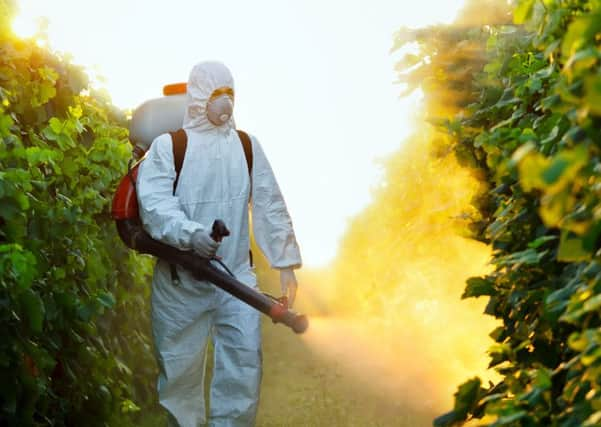EU urged to extend life of key herbicide after review
This article contains affiliate links. We may earn a small commission on items purchased through this article, but that does not affect our editorial judgement.


Farmers across Europe have declared that it is essential that the commission respects these opinions and maintains trust in EFSA and the high standards which EU producers meet by re-registering the propduct for the full 15 years.
• READ MORE: Farming news
“Creating doubt about EU science-based decision-making processes will only have a negative impact on the credibility of the EU authorities,” said the EU-wide farm union umbrella group, Copa-Cogeca.
Advertisement
Hide AdAdvertisement
Hide Ad“And at the same time such an attitude would jeopardise our high safety standards while putting our own farmers in a less competitive and uncertain position compared to their competitors in non-EU countries.”
NFU Scotland’s Andrew Bauer was of the same opinion and added that the highly political nature of the debate surrounding the world’s most widely-used spray highlighted the need for farmers to remain engaged with the issue.
“The product is widely used across the world, but it is extremely important to growers in the wetter climates of northern Europe – where dry harvests cannot be relied on – as it can be used to help ripen the crops,” Bauer said.
While some had thought that stopping pre-harvest desiccation with the spray might be the price required to keep the registration, Bauer said that provided the withdrawal period before harvest was respected, science had shown there was no danger.
However, he said that it was crucial that farmers made their voices heard about the importance of the product to their businesses.
“Petitions have been organised to ban or limit the use of glyphosate by lobbying groups with thousands of signatures – and if farmers want to rebalance the picture in light of this populist movement, they need to contact their MEPs and MPs with their own views,” he said.
Advertisement
Hide AdAdvertisement
Hide Ad“Obviously the union will be doing this too – but it is crucial that more voices are put behind the argument.”
While there is yet no firm timescale for debate on the issue, the European Commission will need to reach a decision by the end of this year – and the Agricultural Industries Confederation (AIC) has said that to ensure re-registration either France or Germany needed to vote in favour rather than abstaining as they had done the last time a vote on the matter was taken.
“While it’s unlikely that France will move to support the re-registration, the fact that the work which has been done – producing the ‘safe’ conclusion – was carried out by well-respected and through German scientists should be sufficient to get the country’s support,” said AIC chief executive, David Caffall.
“However, with a German election on the horizon, that vote is likely to remain subject to the science versus politics debate until it is over.”